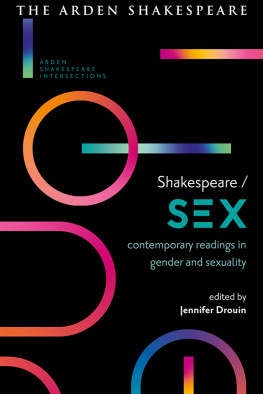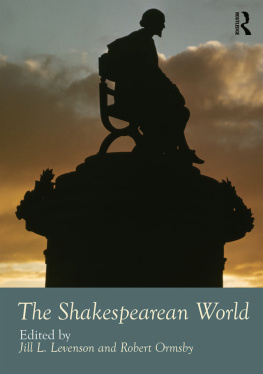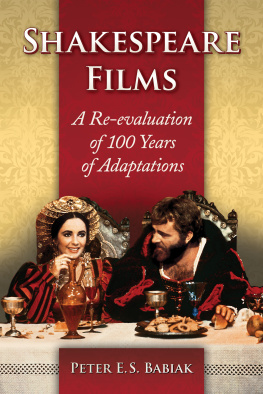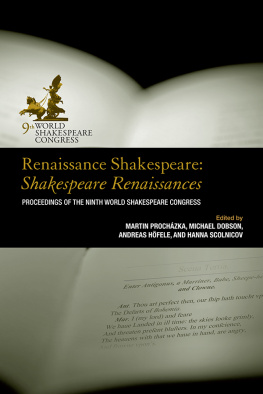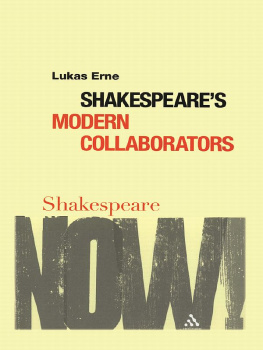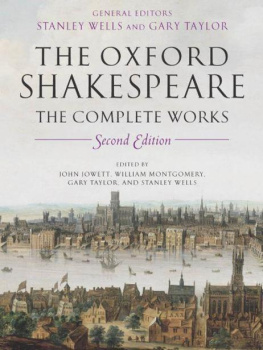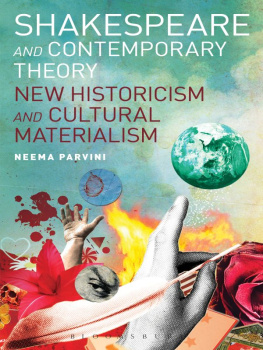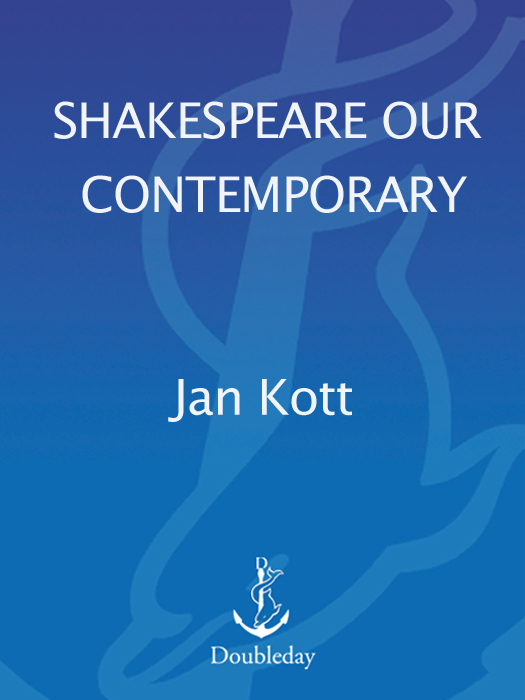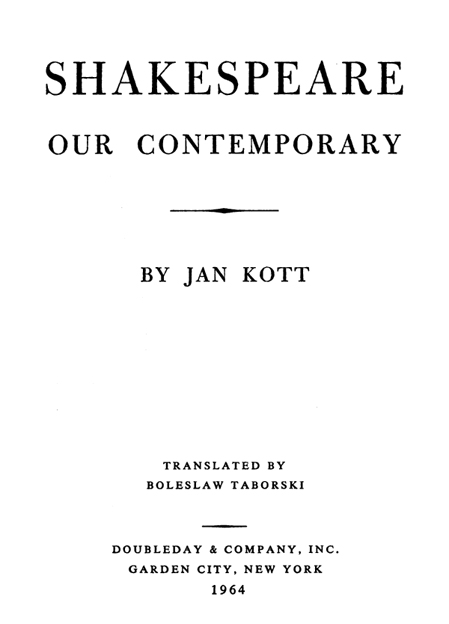) by Zbigniew Herbert, translated by Czeslaw Milosz, are reprinted from Encounter, August 1961, by permission of Encounter. Copyright 1961 by Encounter, Ltd.
Shakespeare Our Contemporary was originally published in Poland
by Panstwowe Wydawnictwo Naukowe, Warsaw, under the title Szkice o Szekspirze.
LIBRARY OF CONGRESS CATALOG CARD NUMBER 6419302
COPYRIGHT 1964 BY PANSTWOWE WYDAWNICTWO NAUKOWE IN BERNE UNION COUNTRIES
INTRODUCTION COPYRIGHT 1964 BY DOUBLEDAY & COMPANY, INC.
ALL RIGHTS RESERVED
eBook ISBN: 978-0-8041-5219-8
v3.1
To Lidia
For he is but a bastard to the time,
That doth not smack of observation
(King John, I, 1)
CONTENTS
INTRODUCTION
Great works of art have an autonomous existence, independent of the intention and personality of their creators and independent also of the circumstances of the time of their creation, that is the mark of their greatness. The tragedies of Aeschylus, the paintings of El Greco, the poems of John Donne have a significance to twentieth-century man of which the contemporaries of their creation could not have had the remotest notion. In the light of psychoanalysis, of the experiments of the expressionists, of the poetry of Rilke or Pound, the Oresteia, The Burial of Count Orgaz, and The Anniversaries assume new and deeper meanings. The writing of history and, above all, literary criticism can, and must, always be understood as an attempt to find in the past aspects of human experience that can shed light on the meaning of our own times.
In the case of Shakespeare this process is particularly clear: Samuel Johnsons Shakespeare is very different indeed from the Shakespeare of Coleridge or Hazlitt, very different from the Shakespeare of Georg Brandes or Harley Granville-Barker, and equally different from the Shakespeare of our own time. And likewise the angle of vision changes with the place, as well as the time, from which the great, the autonomous work of art is seen. The significance of Shakespeare is very different in the English-speaking countries from what it appears to be in Germany, Scandinavia, France, or Eastern Europe. In many Eastern European countries, for example, the national literature, and therefore national consciousness itself, had crystallized around translations of Shakespeare. Only after a language had passed the test of being able to accommodate the form and content of the greatest drama (and Shakespeare is seen as that) could it lay claim, in the eyes of the people concerned, to be regarded as a vehicle for the highest flights of thought and poetic expression. Once a language had its fully adequate version of Shakespeare it became able to support the foundations of a nation, its institutions, its political autonomy. Only the Bible rivals Shakespeare in this aspect of archetypal significance.
No wonder, therefore, that to the nations concerned Shakespeare may appear more urgent, more vital, more crucially important than to the English-speaking world where familiarity has blunted the impact of shock in the presence of genius, where the great thoughts have become eroded into the clichs and commonplaces of the school essay, and the analysis and criticism of the bards work is by now so well-worked and well-trodden a field that any newcomers have to concentrate on more and more atomized and specialized aspects, until the monumental outlines of the whole disappear in the myopic gaze of the examiners of microscopic detail.
Moreover, a curious conjunction of time and place occurs occasionally: there may be, that is, for each epoch an optimum place from which to view the great autonomous work of arta place, in fact, from which the experience of an epoch is most intensely felt and epitomized, a place from the experience of which the significance of the great work of art may emerge most clearly for an entire age; thus the French interpretation of Greece and Rome determined the way in which the culture of the classical age was experienced throughout Europe in the seventeenth century, while in the late eighteenth century the art of Greece and Rome tended to be seen through the eyes of German scholars and critics like Winckelmann.
Where, in the world of the mid-twentieth century, shall we seek the vantage point from which Shakespeare can be seen and reinterpreted with the highest degree of relevance, of fresh, revitalized significance for our own age?
In the light of Jan Kotts book, which is here made available to an English-speaking public, it might be argued that this point of vantage might well be situated in Eastern Europe, and in Poland in particular.
If it is true that the determining, traumatic experiences of our time are modern war in all its destructiveness, occupation by invading armies, life in bombed cities, the univers concentrationnairethat whole Dante-esque inferno of concentration camps, gas chambers, genocideand the world of ghettoes and their systematic destruction; if it is furthermore true that the debate with totalitarianism in all its forms, whether fascist or Stalinist, is the crucial political and ideological issue of our age, then indeed Poland could well be regarded as a focal point of the mid-twentieth century. Poland has been through the whole gamut of that experience: it suffered (in contrast to France or Italy, for example) occupation by both German National Socialists and Soviet Stalinists and has thus had ample opportunity to compare these two brands of the contemporary heresy in bitter practice. Poland was the hub of the Second World War, the point from which it started as well as one of the chief bones of contention around which the postwar division of the victorious camp into East and West crystallized. On Polish territory stood the extermination camps of Auschwitz and Maidanek, which may well emerge in centuries to come as the best-remembered, the most characteristic feature of our age; and the bulk of the victims of these camps were Polish Jews.
Poland, moreover, not only suffered this experience, it also possesses the sensibility and the tradition to express it. Poland has a population that, among all the peoples of Eastern Europe, is truly Western in its culture as well as deeply rooted in ancient Slavonic tradition; having been a great power in its day in both the political and the cultural sense, Poland has the breadth of feeling, the self-assurance that makes it possible to evaluate all this experience without the resentments and inferiority complexes of nations still struggling for their own identity. Hence Poland could be relied on to produce outstanding individuals with the intelligence and power of perception to record the impact of these archetypal events with the highest degree of sophistication. (It is no coincidence, for example, that one of the subtlest analyses of the malaise of our time, a short play by the Polish poet Tadeusz Rozewicz, is called The Witnesses.)
There is, beyond this, another vital factor which buttresses Polands claim as the critical vantage point for our age: after the astonishing liberation movement of October 1956, Poland was the first, and may well remain the only, East European country to achieve a degree of cultural autonomy and freedom of expression far-reaching enough to allow this experience actually to be brought to light and discussed in a valid and objective manner in conditions of relative intellectual freedom.


